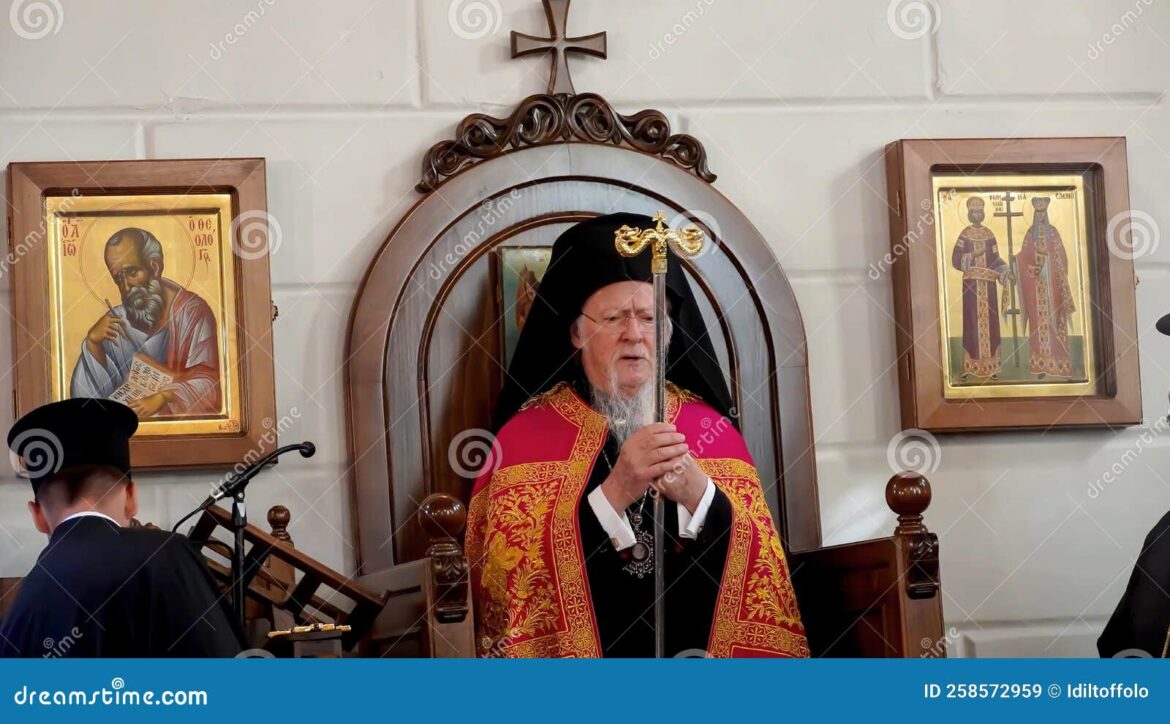Ecumenical Patriarch Bartholomew I of Constantinople stands as one of the most significant spiritual figures in contemporary Christianity. His leadership transcends the boundaries of the Eastern Orthodox Church and extends into the broader Christian community. A beacon of unity, Bartholomew I promotes interfaith dialogue, ecological stewardship, and spiritual renewal. His tenure as Patriarch has not only been marked by traditional ecclesiastical duties but has also served as a fulcrum for modern Christian thought.
Historical Context
To fully appreciate Bartholomew I’s contributions, it is essential to contextualize his role within the annals of the Orthodox Church. Since his enthronement in 1991, he has been at the helm of a Church with a history that dates back to the earliest days of Christianity. The Ecumenical Patriarchate of Constantinople, once the seat of Byzantine authority, has evolved into a symbol of Orthodox Christian unity and has had to navigate the complexities of a fragmented Christian world. Bartholomew I inherited not just a religious institution but a legacy filled with challenges, including geopolitical strife and internal ecclesiastical divisions.
Principles of Unity
Bartholomew I embodies the concept of unity in diversity. His theology promotes a vision of the Church as a communion rather than a collection of isolated communities. By emphasizing shared faith and common values, he encourages diverse factions within Christianity to engage in constructive dialogue. This principle becomes especially crucial in a world where divisions based on nationality, ideology, and tradition often overshadow shared beliefs.
This pursuit of unity manifests in his ardent advocacy for ecumenical dialogues. Participating in various interfaith conferences and initiatives, Bartholomew I actively fosters discussions aimed at bridging gaps between Protestant, Catholic, and Orthodox communities. His contribution in this arena challenges traditional divisions while inviting an examination of the essence of Christian belief—love, compassion, and solidarity.
Addressing Modern Crisis
In an era characterized by existential crises—be they spiritual, environmental, or social—Bartholomew I advocates for a Christianity that is not divorced from contemporary issues. One of his noteworthy initiatives has been his focus on ecological concerns, which he famously dubbed as “the most urgent moral issue of our time.” His encyclical for the Day of Prayer for the Protection of Creation developed a theological framework affirming that care for the environment is inextricably linked to one’s spirituality.
Through his ecological endeavors, he urges not only Christians but all of humanity to recognize the sanctity of creation. His efforts culminated in global discussions, appealing for collective action to address climate change and environmental degradation. Bartholomew I reminds believers that stewardship of the Earth is an inalienable aspect of Christian responsibility and spirituality. This synthesis of faith and environmental advocacy encourages a reimagining of the Christian identity in the context of urgent global challenges.
Spiritual Renewal and Theological Insights
Bartholomew I’s theological insights offer profound refreshment to contemporary discourse on faith. He often emphasizes the transformative power of theology, asserting that it should not merely be a theoretical exercise but instead a guiding light for life. The Patriarch’s perspective invites Christians to engage in a deeper self-examination of their beliefs and practices. He champions the idea of renewal that is anchored in the Tradition of the Church while being responsive to the present realities of society.
This dynamic interplay between tradition and relevance is particularly illuminating in a postmodern context, where many seek authenticity in their spiritual journeys. Bartholomew’s teachings encourage a non-dogmatic faith, one that is open to questions and exploration. He reiterates that the essence of Christianity lies within its ability to adapt while remaining grounded in its core tenets. Through his writings and addresses, he invites individuals to cultivate a faith that both challenges and uplifts, fostering a sense of genuine curiosity about the divine.
The Role of Dialogue
Underlying Bartholomew I’s commitment to unity is an unyielding belief in the power of dialogue. The Ecumenical Patriarchate has initiated various dialogues with non-Christian faiths, reflecting an approach that recognizes the plurality of beliefs in the world. This openness is not merely an act of tolerance but rather an acknowledgment that all people seek meaning and belonging. Bartholomew I challenges Christians to step outside their ecclesiastical confines and engage in profound conversations with diverse communities. Such dialogues can illuminate shared moral imperatives and foster peace in increasingly polarized societies.
Conclusion: A Call to Action
In a world beset by division, Ecumenical Patriarch Bartholomew I offers a clarion call for unity rooted in love, dialogue, and responsible stewardship of creation. His pioneering spirit invites all Christians to reimagine the Church’s role within the modern context, advocating for a faith that not only transcends cultural barriers but also directly engages with pressing global issues. As believers navigate the complexities of the 21st century, Bartholomew I stands as a testament to the enduring relevance of Christian principles, urging individuals to embrace a perspective that catalyzes transformation—both within themselves and within the world around them. It is in this quest for unity and understanding that the essence of Christianity can truly flourish, promising a future where love guides actions and faith inspires hope.



